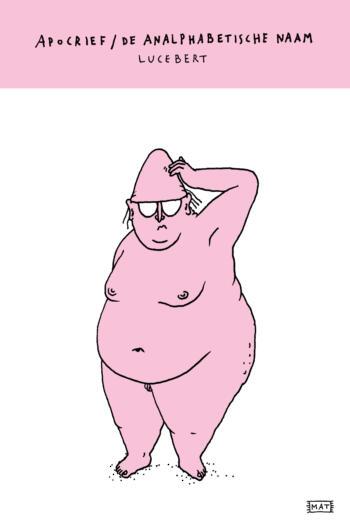-
Vorige
Oeroeg (The Black Lake)
Hella S. Haasse
1948 -
Volgende
De Kapellekensbaan (Chapel Road)
Louis Paul Boon
1953 / 1956
The “winsome rhymers” he referred to were those who, in his opinion, continued to believe in the traditional values of goodness and beauty even after the Second World War, as though these values had not been bankrupted by the horrors of that war. He warns them that their time is near:
ik bericht, dat de dichters van fluweel schuw en humanisties dood gaan. voortaan zal de hete ijzeren keel der ontroerde beulen muzikaal opengaan.
I report that the velvet poets perish shyly and humanistically. henceforth the hot iron throats of moved torturers will open musically.
Lucebert and his fellow experimenters were permeated with the belief that new times call for new poetry. After all: “in deze tijd heeft wat men altijd noemde / schoonheid schoonheid haar gezicht verbrand” (“in this age what was always called beauty beauty / has burnt her face”).
All the prescribed notions of beauty would have to be discarded in favour of a clean slate. Reason, common sense and good taste had to be renounced. In their place came the body, intuition and an uncensored authenticity. The poet no longer controlled the language and form of the poem. On the contrary, he/she had to surrender themselves to language and the mysterious and elusive meanings that arise from it:
Ik heb daarom de taal in haar schoonheid opgezocht hoorde daar dat zij niet meer menselijks had dan de spraakgebreken van de schaduw dan die van het oorverdovend zonlicht
And so I sought out language in her beauty heard there she had nothing human left but the speech defects of the shadow but those of the earsplitting sunlight
The poems that put these principles into practice create linguistic fireworks. Whole and half, possible and definite, reconcilable and irreconcilable meanings jostle for position, then light up and vanish. These are not works for readers who like clarity, but they offer an inexhaustible language experience, a feast, for those who are prepared to accept darkness, provisionality and contradiction.
It is no coincidence that a separate section of the book, the Drawn Name, features poems about some of the great names in modern art: Arp, Brancusi, Moore, Mirò, Klee, etc. Each one of them was a kindred spirit who used colour, light and form to create a universe of meanings that leaves the rational far behind. The fluid, round forms of Henri Moore’s sculptures seem to flow into the words of the poet:
het is de aarde die drijft en rolt door de mensen het is de lucht die zucht en blaast door de mensen
it is the earth that floats and rolls through the people
it is the air that sighs and blows through the people
With their wildness, irrationality and breaking of taboos, these poems were not met with a warm reception. Critics called these poems “a betrayal of the spirit” and “an assault on culture”.
This did not prevent Apocryphal / the Analphabetical Name from being awarded the municipality of Amsterdam’s Poetry Prize. Dressed as the “Emperor of the Vijftigers”, Lucebert proceeded to the Stedelijk Museum to accept his prize. But entry was denied to him and his followers. There were limits to tolerance, after all.






